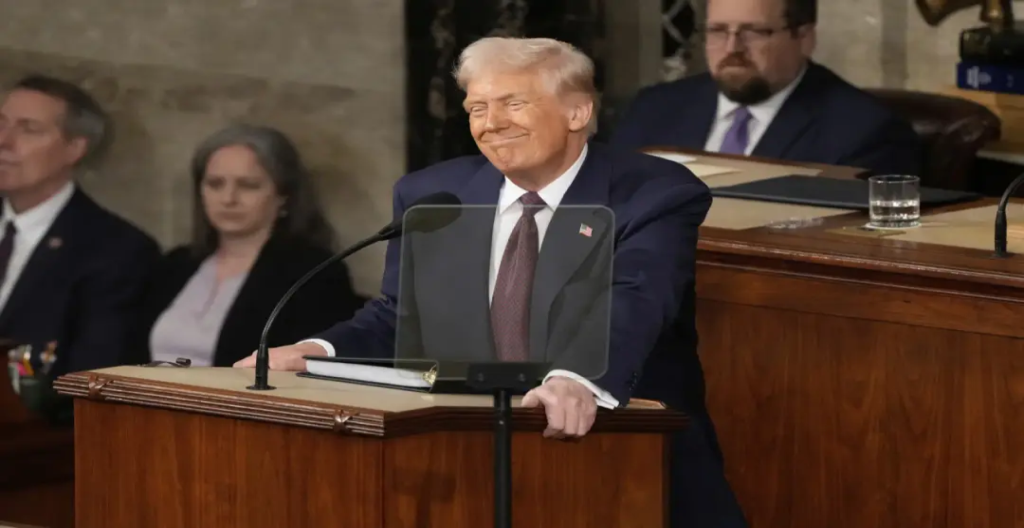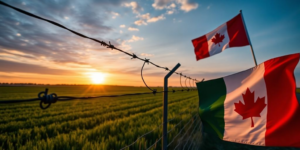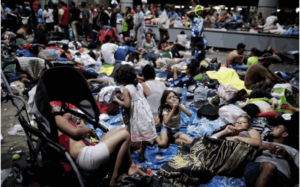Brazil Calls Out Meta: Hate Speech Rules Clash with Local Laws 5
Brazil says Meta hate speech policy changes do not fit with local law
In a bold move, Brazil is putting Meta under the microscope. The country isn’t thrilled with Meta’s latest changes to its hate speech policy, saying they don’t jive with local laws. Brazil’s government thinks these changes might mess with the fundamental rights of its people. With about 100 million Facebook users in Brazil, this is a big deal. The government has given Meta a tight deadline to explain itself. This is shaping up to be a pretty intense showdown.
Key Takeaways
- Brazil challenges Meta over new hate speech policy changes.
- Meta’s adjustments could clash with Brazil’s local laws.
- The Brazilian government is worried about fundamental rights.
- Meta has 72 hours to clarify its stance to Brazil.
- Public hearings in Brazil are set to discuss the issue.
Brazil’s Concerns Over Meta’s Hate Speech Policy

Government’s Serious Concerns
Brazilian officials are very concerned about the new rules Meta is bringing in because they could clash with Brazil’s strict laws against hate speech, including racial slurs. The government is unhappy because Meta wants to relax the rules about hate speech, and this might not be okay according to Brazilian laws. With Meta stopping fact-checking in the U.S. people in Brazil are also worried about how this might impact them.
Brazil is making it clear they’re upset about the changes Meta is making.
Impact on Fundamental Rights
In Brazil, the protection of fundamental rights is a big deal, and the government is concerned that Meta’s new policies could undermine this. There’s a fear that the changes might create an environment that’s ripe for violating the rights of Brazilian citizens. The country’s laws are pretty clear about safeguarding individuals against hate speech, and there’s a lot of chatter about how these new rules might not align with those standards.
Public Hearing Announcement
To tackle these issues head-on, Brazil has announced a public hearing to discuss the implications of Meta’s policy changes. This hearing is expected to bring together experts and stakeholders to hash out the potential impacts and figure out a way forward. The government is keen on ensuring that social media platforms respect Brazilian laws, and this hearing might be a step in that direction. It’s a clear message that Brazil is not going to let these changes slide without scrutiny.
Meta’s Policy Changes and Their Global Impact
Reduction of Curbs on Contentious Topics
Meta has stirred the pot by easing restrictions on hot-button issues like immigration and gender identity. The company says this shift is about encouraging more open dialogue. But critics are worried it might just give a megaphone to harmful rhetoric. The idea is to promote conversation, but it’s a fine line between freedom and chaos.
Scrapping Fact-Checking in the U.S.
In a bold move, Meta has decided to drop its fact-checking program in the United States. This decision has sparked debates on whether it will lead to a rise in misinformation. Without the safety net of fact-checking, users might find themselves swimming in a sea of unchecked claims.
International Reactions to Policy Changes
The world is watching Meta’s policy shifts closely. Countries like Brazil are raising eyebrows, questioning how these changes align with their laws. Meanwhile, Meta and Zuckerberg are pushing back against the global push for regulation. The ripple effects of these changes are unpredictable, but they’re certainly making waves across the globe.
Meta’s recent policy updates have ignited discussions worldwide, highlighting the delicate balance between freedom of expression and the responsibility to curb harmful content.
Legal Implications of Meta’s Policy in Brazil
Brazilian Legislation on Hate Speech
The Attorney General of Brazil is really worried about Meta making it simpler for people to say mean things. Brazil has strict rules against speaking unkind words about someone’s race or religion. The country makes sure these laws are followed because they keep people’s basic rights safe. When Meta decided to be less strict about hate speech, it looks like they may potentially disagree with Brazil’s laws.
In Brazil, if you say something hateful, they take it seriously and you can’t get away with it.
Potential Legal Actions Against Meta
If Meta doesn’t follow Brazil’s laws, the country could really bring them before a judge. The situation isn’t simply that they don’t agree on policies–it’s a major issue because it primarily bears on someone breaking laws that are there to keep people safe. Brazil has already proven they are very serious by shutting down other social media sites before when they didn’t follow the rules.
Meta could be in for some tough legal battles in Brazil if they don’t improve their behavior.
Role of Brazil’s Solicitor General
The office of Brazil’s Solicitor General (AGU) is playing a big role in this whole situation. They’ve been vocal about their “serious concern” regarding Meta’s policy changes. The AGU, along with other ministries, believes that the current terms of use and the changes Meta has announced just don’t fit with Brazil’s legislation. They’re worried that these changes aren’t enough to protect fundamental rights. The AGU is likely to be a key player if any legal actions are taken, ensuring that Brazilian laws are respected and upheld.
The tension between Meta’s global policy changes and Brazil’s local laws highlights a significant challenge in the digital age: balancing the need for freedom of expression with the responsibility to protect citizens’ rights.
Freedom of Expression vs. Protection of Rights

Meta’s Aim for Greater Freedom
Meta has been pushing for more open discussions on its platforms. By loosening restrictions on topics like immigration and gender identity, they aim to create a space where users feel free to express themselves. This move, however, has sparked debate on how freedom of speech should be balanced with the responsibility to prevent harm.
Brazil’s Stance on Freedom and Responsibility
Brazil, on the other hand, emphasizes the importance of protecting its citizens from harmful content. The country’s laws are clear: certain types of speech, especially those that incite violence or discrimination, are not tolerated. Brazil’s local legislation prohibits certain types of hate speech, including racial slurs and religiously motivated attacks. The Brazilian government demands that Meta’s policies align with these standards.
Balancing Expression and Protection
Finding a middle ground between free expression and safeguarding rights is tricky. Here are some of the challenges:
- Defining harmful content: What one person sees as offensive, another might see as a valid opinion.
- Cultural differences: What works in one country might not be suitable in another.
- Legal obligations: Companies like Meta must navigate a complex web of local and international laws.
The ongoing debate highlights the need for a nuanced approach that respects both individual freedoms and community safety. It’s a delicate dance between allowing open dialogue and ensuring that such dialogue doesn’t harm others.
Public and Governmental Reactions to Meta’s Changes
President Lula’s Response
President Lula has been quite vocal about his concerns regarding Meta’s recent policy changes. He labeled the situation as “extremely serious,” emphasizing that these changes could potentially clash with Brazil’s strict regulations on hate speech. Lula’s administration has demanded a detailed explanation from Meta, reflecting the urgency of the situation.
Public Opinion in Brazil
The Brazilian public is divided on the matter. Some users appreciate the idea of more freedom of expression on social media, while others fear that it might lead to an increase in hate speech and misinformation. Here’s a quick rundown of the public sentiment:
- Supporters argue that less restriction could foster open dialogue.
- Critics worry about the potential for harmful content to spread unchecked.
- Neutral parties are waiting to see how these changes unfold before forming an opinion.
International Diplomatic Discussions
Internationally, Meta’s policy shift has sparked discussions beyond Brazil. President Lula even discussed the issue with French President Emmanuel Macron. They both agreed that freedom of expression shouldn’t be a license to spread falsehoods or insults. This sentiment is echoed in diplomatic circles as countries grapple with the implications of Meta’s new stance on hate speech.
Future of Social Media Regulations in Brazil
Upcoming Public Hearings
The Brazilian government is gearing up for a series of public hearings to discuss the future of social media regulations. These hearings aim to address the recent changes in Meta’s hate speech policy and their implications for Brazilian users. The focus will be on ensuring that online platforms comply with local laws and protect fundamental rights. Government officials, tech experts, and civil society representatives are expected to participate, providing a platform for diverse perspectives.
Potential Policy Revisions
As Brazil scrutinizes Meta’s policy shifts, potential revisions to existing social media laws are on the table. The government might consider stricter guidelines to ensure that platforms do not become breeding grounds for hate speech and misinformation. This could include more stringent requirements for content moderation and accountability measures for tech companies.
Long-Term Implications for Meta
The ongoing scrutiny of Meta’s policies could have significant long-term implications for the company in Brazil. If the government decides to implement new regulations, Meta may need to adapt its operations to align with local laws. This could involve changes to its content moderation strategies and increased transparency in its algorithmic processes. Failure to comply might result in legal actions or restrictions on Meta’s platforms within Brazil.
Brazil’s government is taking a firm stand on safeguarding its citizens’ rights in the digital realm. The upcoming discussions and potential policy changes reflect a commitment to balancing freedom of expression with the protection of vulnerable communities. The outcome of these deliberations could set a precedent for how social media is regulated in the future.
Meta’s Response to Brazilian Government’s Concerns
72-Hour Deadline for Explanation
Brazil has given Meta a sharp 72-hour window to clarify its stance on how it plans to handle hate speech in Brazil. The government is demanding transparency from the tech giant, emphasizing the need to align with local laws. This tight deadline underscores Brazil’s urgency in addressing potential legal discrepancies and ensuring that Meta’s policies do not undermine the country’s strict regulations on hate speech.
Meta’s Communication Strategy
Meta’s approach to addressing these concerns involves clear communication and maintaining a dialogue with Brazilian authorities. They have reiterated that changes to their fact-checking program are limited to the U.S., aiming to reassure Brazil that their policies remain compliant with local laws. However, the Brazilian government remains skeptical, wanting more detailed explanations on how Meta plans to uphold the protection of fundamental rights within the country.
Possible Outcomes of the Dispute
This standoff could lead to several outcomes. First, Meta might revise its policies to better align with Brazilian laws, preventing further conflict. Alternatively, if Meta’s explanations are unsatisfactory, the Brazilian government might pursue legal actions or impose restrictions on the platform. Lastly, this dispute could prompt broader discussions on international regulations for digital platforms, setting a precedent for how global tech companies navigate local laws.
This whole situation highlights the delicate balance between a company’s global policy ambitions and the need to respect local laws and cultural norms. It’s a tricky terrain that requires not just dialogue but also a willingness to adapt and compromise.
Conclusion
Brazil has some strict rules on hate speech to make sure everyone’s safe online. Meta finds itself in a difficult situation, trying to balance letting people speak freely with what Brazil expects. What’s happening now is showing us that the larger our online world becomes, the harder it becomes to make it a safe, comfortable, and fair location for everyone.
Dealing with how major global companies should behave when faced with different countries’ rules and cultures is a tricky problem. It’s not particularly striking just adjusting a few rules–what’s really essential is respecting how things are done in various places. Soon, Brazil will be hosting a key discussion on how to tackle these challenges, having the plan to be sure everyone’s freedom and safety are protected.
This entire thing with Brazil and Meta is making everyone think hard about how to navigate the complexities of keeping things fair while respecting everyone’s rights.
Frequently Asked Questions
Why is Brazil worried about Meta’s hate speech rules?
Brazil is worried because it thinks Meta’s new hate speech rules don’t match the country’s laws, which protect people’s basic rights.
What changes did Meta make to its policies?
Meta changed its rules to allow more talk on tough topics like immigration and gender identity. It also stopped its fact-checking in the U.S.
How has the Brazilian government reacted to Meta’s changes?
The Brazilian government is very concerned and has asked Meta to explain its new rules within 72 hours.
What are Brazil’s laws on hate speech?
Brazil’s laws do not allow hate speech, like racial slurs or comments against someone’s religion.
What might happen if Meta doesn’t follow Brazil’s laws?
If Meta doesn’t follow Brazil’s laws, the government might take legal actions against the company.














15 comments